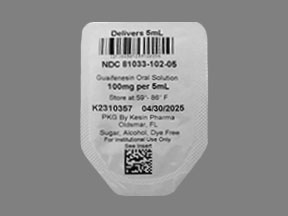
Mucus & Chest Congestion Coupons & Savings Card – Discount Prices from $7.00
Brand for: Guaifenesin
My prescription
Edit
118ML of 100MG/5ML, Guaifenesin (1 Bottle)
Select pharmacy

Albertsons
$7.00
COUPON PRICE
Walgreens
$10.50
COUPON PRICEMucus & Chest Congestion savings card
Show this card to your pharmacist
Albertsons
$7.00
BIN
ID
PCN
GRP
011867
LHE9CF7D56
HT
LABH001
Powered by
More prescriptions for cough
More prescriptions for cough
Price history for Mucus & Chest Congestion (brand) & Guaifenesin (generic)
1 Bottle, 10ML of 100MG/5ML
Average retail price for Mucus & Chest Congestion
Average retail price for Guaifenesin
Average SaveHealth price for Guaifenesin
Our price history data is based on aggregated prescription data collected from participating pharmacies in America. Our prescription data updates daily to reflect the latest price changes. If you notice a missing data point, it means there wasn't sufficient data available to generate a monetary value for that date.
Over the last 12 months, the average discount price of Mucus & Chest Congestion is $2.54 using the SaveHealth savings card. That's an average savings of 78.82% on Mucus & Chest Congestion with our discount card.
*Retail prices are based on pharmacy claims data, and may not be accurate when we don't have enough claims.
Mucus & Chest Congestion (Guaifenesin) dosage forms
Dosage Quantity Price from Per unit 10ML of 100MG/5ML 1 Box $9.13 $9.13 10ML of 100MG/5ML 2 Boxes $9.25 $4.63 10ML of 100MG/5ML 3 Boxes $9.38 $3.13
| Dosage | Quantity | Price from | Per unit |
|---|---|---|---|
| 10ML of 100MG/5ML | 1 Box | $9.13 | $9.13 |
| 10ML of 100MG/5ML | 2 Boxes | $9.25 | $4.63 |
| 10ML of 100MG/5ML | 3 Boxes | $9.38 | $3.13 |
Using the SaveHealth discount card, what is the price of Mucus & Chest Congestion without insurance?
Using the SaveHealth discount card, the price of Mucus & Chest Congestion without insurance is $7.00.
What is the price of Mucus & Chest Congestion at Walgreens?
The price of Mucus & Chest Congestion at Walgreens is $10.50.
